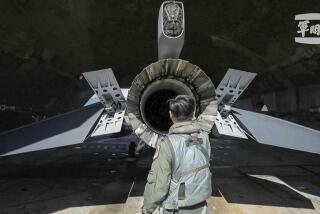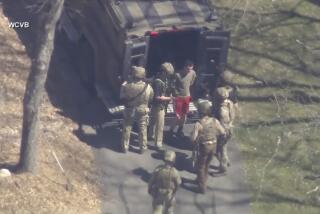Saudis Reportedly Armed Bosnia, With U.S. Assent
- Share via
WASHINGTON — Dismayed by Western inaction in Bosnia-Herzegovina, Saudi Arabia funded a $300-million covert operation to channel weapons to the Muslim-led government over the past three years with the tacit cooperation of the United States, according to an official with firsthand knowledge of the operation.
The alleged arms shipments, which were in addition to about $500 million in Saudi humanitarian aid, violated a U.N. arms embargo on the former Yugoslav federation that the U.S. pledged to enforce.
The Bosnian program was modeled in some respects on the Afghanistan experience in the 1980s, when Saudi Arabia helped finance the covert arming of anti-Soviet Islamic fighters in an operation supported by former U.S. military and intelligence personnel, according to a Saudi official, who spoke on condition that he remain unidentified. The essential difference was that the United States did not provide matching funds for the Bosnian arms-smuggling effort, in contrast with the Afghan operation.
The Saudi official provided significant new details about the scope, timing and operation of the program, of which only sketchy descriptions have been provided in the past by American and other Western officials. The Saudi decision to reveal the information appeared motivated in part by a desire to take some credit away from rival Iran for a series of military and diplomatic gains by the Bosnian Muslims in their battle with the Bosnian Serbs.
The Saudi assertion of U.S. cooperation in supplying arms to the Bosnian Muslims drew strong denials from American officials. One senior White House official called the allegation “preposterous and insulting.” Clinton administration officials have repeatedly denied persistent reports from European allied officials of U.S. involvement in arming the Bosnian Muslims during the 3 1/2-year war.
The Saudi official provided few details about direct American involvement but insisted that the American role “was more than just turning a blind eye to what was going on.”
More to Read
Sign up for Essential California
The most important California stories and recommendations in your inbox every morning.
You may occasionally receive promotional content from the Los Angeles Times.













